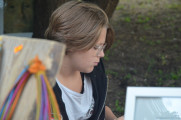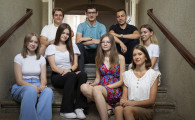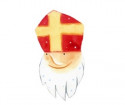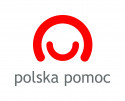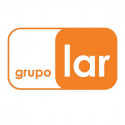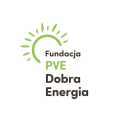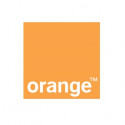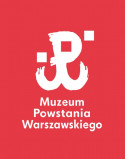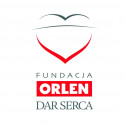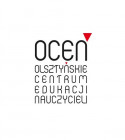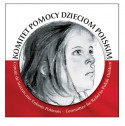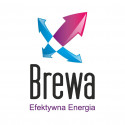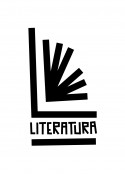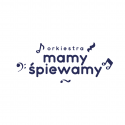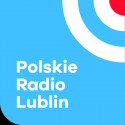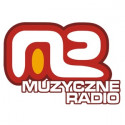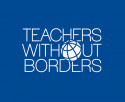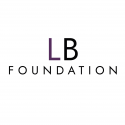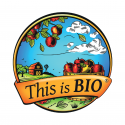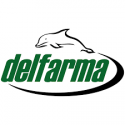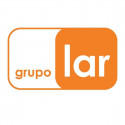Among the many problems faced by the Ukrainian children who took refuge in Poland, the need for professional psychological support rates very highly. In this article we discuss the situation and problems faced by these children with Marianna and Tetiana – specialised psychologists who work in the Saint Nicholas’ Haven in Warsaw which our Foundation set up in cooperation with the Intra Association.
Thanks to the funds of Fondation de France, the Saint Nicholas Foundation set up the psychological support center in May 2022. The center provides much needed psychological support to the Ukrainian children and teenagers who seek refuge in Poland after the war broke in their country. Up to date, the center provided a total of 1135 hours of therapy.

Marianna and Tetiana, told us about their work in our Haven. Both are refugees themselves who have been working for many years with traumatised children. Below is the first part of our conversation with them.
Who are your patients? What is their age, gender and what problems they come with?
Marianna: I have been working in the Saint Nicholas’ Haven since the beginning of July last year. Before, also in Poland, I worked in five primary schools and in two high schools in another Polish city where I provided psychological support to 180 Ukrainian children. The biggest problems they faced are connected to their integration: traumatised children are not willing to establish contact with their peers, build relations. We tried to create groups for Ukrainian children only, but even then, they did not want to meet each other, integrate within their groups. I spoke to may parents who reported the same integration problems with their children who refuse to go to school, beg their parents to let them stay at home, preferring telework, just to avoid going physically to school. From the group of 180 children under my psychological care, about 120 had such problems.
Integration is easier for children below the age of 11 but they still face very serious problems which are connected to their family situation: they grow up in separated families, miss their dads, they spend a lot of time by themselves as their moms work most of the time to provide for them. There are many children whose fathers died, so on top of everything they are also faced with grief. It is important to understand that their moms are also affected by serious traumas and stress which makes the situation even more complex.
At the Saint Nicholas’ Haven in Warsaw, the vast majority of my patients - some 85% - are teenagers, above 11 years old. Most of whom face serious integration problems. They find it difficult to adapt to the new situation, refuse to meet new people, don’t maintain contacts with each other. Even extroverts end up retreating into themselves. Many self-harm - they cut their tummies, legs, arms, hands. Since July last year I have been taking care of 25 such young patients. I also support four teenagers who attempted to commit suicide.
This is a very difficult topic and I am sorry to say this, but child psychiatry in Poland is in dire straits. I am talking about psychiatric hospitals. In Ukraine, as a psychologist I closely cooperated with a psychiatrist, we jointly discussed the need to increase of decrease medications. In Poland such cooperation does not exist, which constitutes a huge problem. Many of the Ukrainian refugee children here suffer of serious depression and find it difficult to get out of bed. I am a mother of a teenager myself – a physically healthy boy who is 14, but sometimes he stays in bed for three days. How about children of parents who are not trained psychologists and who do not know how to help such a traumatised child?
How do you compare your work with children before the war with that after the war?
Marianna: It is hard to find the words, to describe how the war has affected children. Hard to find the words even in Ukrainian language. Everything has changed. The children have changed completely. In a very short time, small children start behaving like late teens, they undergo a process of accelerated growth and maturity. The terrible experience of the war has made them grow by 5 years in a few weeks.
OSmetimes, on the contrary, I have teenage patients who behave like small children. They don’t have expectations, they don’t want to live, they reduce their needs to eating. They undergo a process of advanced infatilisation. None of the children I assist remind me of those I was supporting in the pre-war Ukraine.
There was one exception though: among my patients there was a girl who reminded me of my pre-war patients, but it soon turned out she had been living in Warsaw prior to the war, so she was not directly affected by it. She was the only ‘typical’ teenager I had.
Tetiana: Many children suffer of PTSD, which is very uncommon in children in a ‘’normal” situation. Post Traumatic Stress Disorder has became a norm among the children here: they don’t sleep, don’t eat, don’t talk, they hide, they cover the windows just like clinical depression patients. They have frequent flashbacks - continuously return to the traumatic experiences they witnessed. This is a very difficult symptom to manage, but the other stage of post-trauma consists in the emergence of all the other traumas from the child’s early stages of life, even those which they do not consciously remember.
Problems end up overlaping. Post-trauma sets in motion numerous mechanisms related to co-dependence. In Ukraine, the girls who grow up in Ukraine are typically expected to adopt the old-style submissive role, the role of ‘servants’ which results in the behaviour of acquired helplessness. When all the elements I spoke about are combined, very often we see such children or teenagers being unable to take care of themselves, facing problems with performing very basic activities: getting dressed, putting their things in order… This is almost a template. Post-trauma activates co-dependency which activates an acquired helplessness.
Identity crisis is another aspect. Children don’t know how to answer the question about who they are. They move from one country to another, everything happens under big pressure, they meet a lot of people who expect them to integrate quickly and to start speaking another language. Part of the problem is that these teenagers do not want to go to school, they do not want to speak another language. I am not talking about Polish language only: I have young patients coming from Eastern Ukraine, who are Russian native speakers, who do not want to speak Ukrainian, even though they feel Ukrainian. They prefer to speak Russian - language they use to communicate with their mothers, their fathers. On the other hand the Ukrainian – speaking children (coming from Eastsr part of the country) refuse everything that is connected to Russia, including the language. This is how internal conflicts and fights start within the group. This identity crisis will no doubt have bad effects in the future.
How about domestic violence? Is it increasing?
Tetiana: Yes, sadly. This is why it is very important for a psychologist to work with the entire family, not just with a child. Refugee families in Poland are almost always separated which increases problems among the spouses. Children feel increasingly more safe in the kindergarden than at home. When we start talking to the mother, it comes out that she is in another relationship. The co-dependence I mentioned before is very tangible here. Women feel the need to be supported, cared for, which give them the illusion of a temporary safety. Women are offered jobs by men and they can wrongly interpret certain signals thinking that a new relationship is a new ‘opportunity’, a clear cut from what they left behind that Eastern border. Family situations become more complicated and this will further impact the situation of the children, it will be an increasing problem. It is hard to say this situation will improve.
Thanks to the generous support of our donors, our Foundation includes the provision of psychological support by qualified staff in 32 Saint Nicholas’ Havens run by our Foundation across Poland. We regularly report about the dauting problems faced by the children escaping from the war.
Aby skorzystać z nieodpłatnej terapii w języku ukraińskim w ramach działania Przystani Świętego Mikołaja prosimy o bezpośredni kontakt z naszym partnerem Stowarzyszeniem Intra: dlaukrainy@stowarszyszenieintra.org.pl



